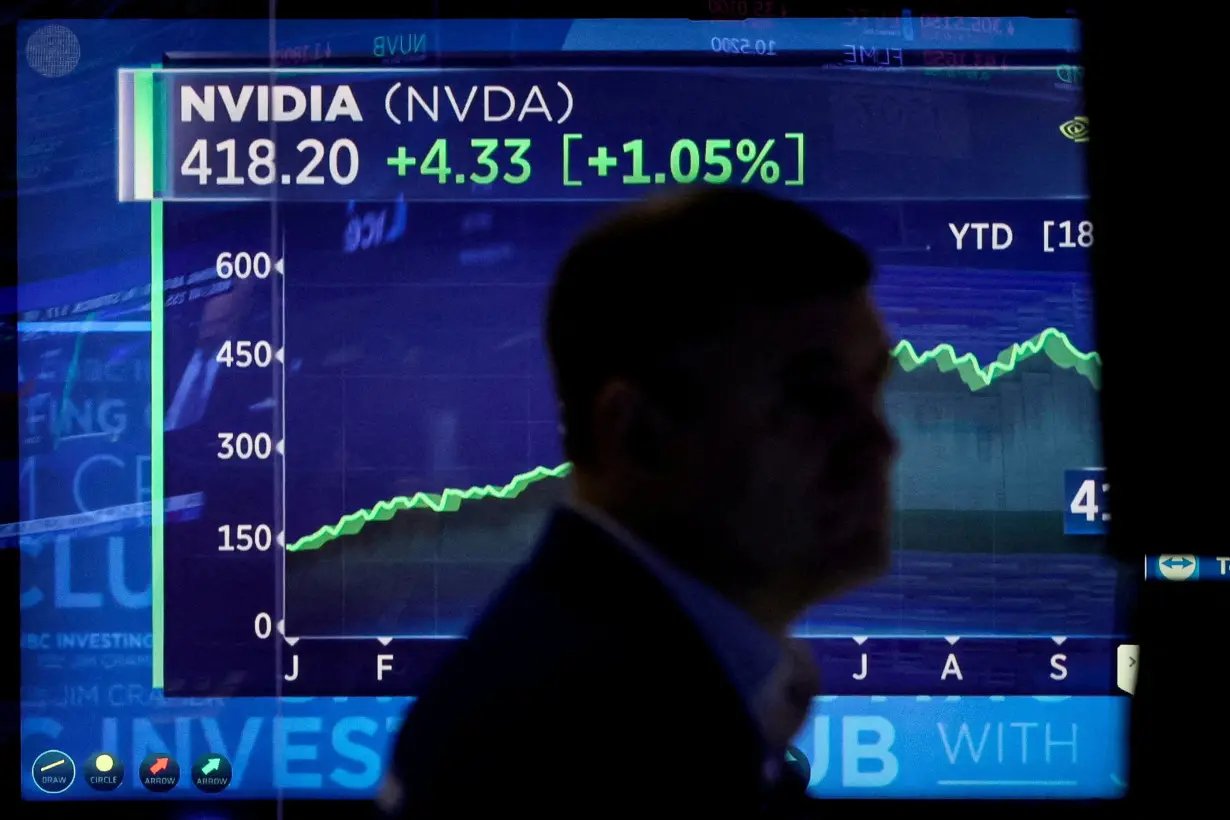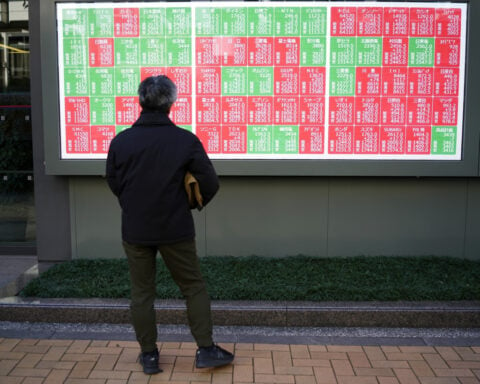By David Randall
NEW YORK (Reuters) - Rattled investors are bracing for earnings from the market’s biggest tech companies, a Federal Reserve policy meeting and closely watched employment data in a week that could determine the near-term trajectory of U.S. stocks following a bout of severe turbulence.
A months-long rally in massive tech stocks hit a wall in the second half of July, culminating in a selloff that saw the S&P 500 and Nasdaq Composite Index notch their biggest one-day losses since 2022 on Wednesday after disappointing earnings from Tesla and Google-parent Alphabet.
More volatility could be ahead. Next week’s results from Microsoft, Apple, Amazon.com and Facebook-parent Meta Platforms could further test investors’ tolerance of potential earnings shortfalls from tech titans. The blistering rallies in the world’s biggest tech companies this year pushed markets higher, but have sparked concerns about stretched valuations.
Though the S&P 500 is still only about 5% below its all-time high and is up nearly 14% this year, some investors worry that Wall Street may have become too optimistic about earnings growth, leaving stocks vulnerable if companies are unable to meet expectations in coming months.
Investors also will be closely watching comments following the end of the Federal Reserve’s monetary policy meeting on Wednesday for clues on whether officials are set to deliver interest rate cuts, which market participants widely expect to begin in September. Employment data at the end of the week, including the closely watched monthly jobs report, could indicate if a nascent downshift in the labor market has become more severe.
"This is a critical time for the markets,” said Bryant VanCronkhite, a senior portfolio manager at Allspring. "You're having people start to question why they are paying so much for these AI businesses at the same time the market fears that the Fed will miss its chance to secure a soft landing, and it's causing a violent reaction."
Recent weeks have shown signs of a rotation out of the high-flying tech leaders and into market sectors that have languished for much of the year, including small caps and value stocks such as financials.
The Russell 1000 Value index is up more than 3% for the month-to-date while the Russell 1000 Growth index is down nearly 3%. The small-cap-focused Russell 2000 is up nearly 9% this month, while the S&P 500 has lost more than 1%.
Even strong earnings may not be enough to get the broad market out of its recent malaise, at least in the near term, said Keith Lerner, chief market strategist at Truist.
"The market is going to take direction based on the fact that these stocks have pulled back," he said. "My thinking is that tech came down so hard, even if you get a bounce from these names due to earnings you will have people itching to sell into any gains."
And any signs that the Fed is seeing worse-than-expected deterioration of the economy could also unnerve investors, disrupting the narrative of cooling inflation but still-resilient growth that has supported markets in recent months.
"We think they are going to stay with the script that they will be data dependent but the data has not been going in a straight line," said Matt Peron, global head of solutions at Janus Henderson Investors. Conflicting signs in the economy have included faster-than-expected GDP growth in the second quarter alongside declining manufacturing activity.
Markets are currently pricing in a near-certainty that the Fed will begin cutting interest rates at its September meeting, and expect 66 basis points in total cuts by the end of the year, according to CME's FedWatch Tool.
The employment data at the end of the week could sway those odds if it shows that the economy has been slowing faster than expected, or conversely, if a picture of rebounding growth emerges.
Still, the recent selloff could be seen as a healthy part of a bull market that burns off excess froth, said Charles Lemonides, head of hedge fund ValueWorks LLC.
"I think the longer-term story is that growth names will carry us through another market high somewhere down the road," he said.
(Reporting by David Randall; Editing by Ira Iosebashvili and Leslie Adler)

 British author Neil Gaiman denies ever engaging in non-consensual sex as more accusers come forward
British author Neil Gaiman denies ever engaging in non-consensual sex as more accusers come forward
 A look at the events that led up to the detention of South Korean President Yoon Suk Yeol
A look at the events that led up to the detention of South Korean President Yoon Suk Yeol
 The long struggle to establish Martin Luther King Jr. Day
The long struggle to establish Martin Luther King Jr. Day
 Two private lunar landers head toward the moon in a roundabout journey
Two private lunar landers head toward the moon in a roundabout journey
 TikTok preparing for U.S. shut-off on Sunday, The Information reports
TikTok preparing for U.S. shut-off on Sunday, The Information reports
 Japan's Makino Milling requests changes to unsolicited bid from Nidec
Japan's Makino Milling requests changes to unsolicited bid from Nidec
 As Los Angeles burns, Hollywood's Oscar season turns into a pledge drive
As Los Angeles burns, Hollywood's Oscar season turns into a pledge drive
 As fires ravage Los Angeles, Tiger Woods isn't sure what will happen with Riviera tournament
As fires ravage Los Angeles, Tiger Woods isn't sure what will happen with Riviera tournament








